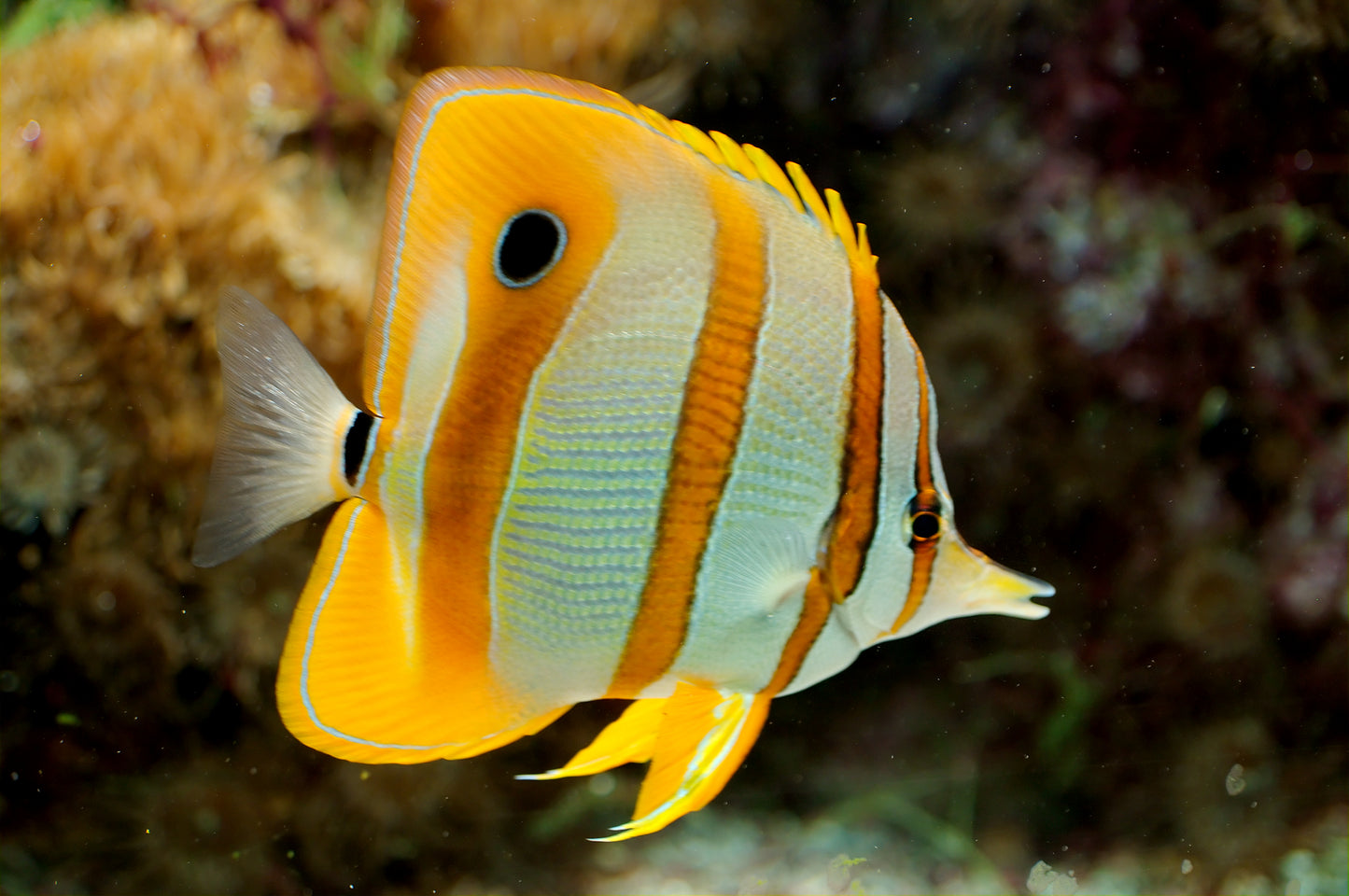Copperband Butterfly
Copperband Butterfly
Couldn't load pickup availability
Origin: Eastern Asia
Size info:
Size M: approx. 2.25 - 3.5"
There once was a Copperband Butterfly,
With stripes that would catch every eye,
With its long, slender snout,
It could dig food right out,
Of crevices, making it quite spry!
Not only is it skilled at feeding,
But its beauty is also exceeding,
A vibrant yellow fin,
And a face that's quite thin,
It's a fish that's truly worth heeding!
So if you spot a Chelmon rostratus,
Don't let its sharp snout intimidate us,
Just admire its grace,
And we'll give it a place,
In the ocean's most marvelous status!
Keeping Chelmon rostratus (Copperband Butterfly) in an Aquarium
The Chelmon rostratus, commonly known as the Copperband Butterfly, is a popular fish among aquarium enthusiasts. They are known for their unique appearance, with their copper-colored bands and long snout. Here are some things to keep in mind when keeping Copperband Butterflies in an aquarium:
- Aquarium size: Copperband Butterflies can grow up to 8 inches in length, so it is recommended to keep them in a tank that is at least 75 gallons.
- Diet: They are carnivores and should be fed a varied diet, including frozen or live foods such as brine shrimp, mysis shrimp, and krill. They may also eat some types of algae and copepods.
- Water parameters: Copperband Butterflies prefer warm water with a temperature range of 72-78°F and a pH range of 8.1-8.4.
- Compatibility: They are generally peaceful fish and can be kept with other non-aggressive species. However, they may not get along with other butterflyfish or fish with similar body shapes.
- Behavior: Copperband Butterflies are active swimmers and need plenty of open space in the aquarium to swim around. They may also hide in rocks or other structures in the tank.
Some of the coolest things about Copperband Butterflies include:
- Their long snout is used to probe into small crevices and cracks in rocks to find food.
- They are known to eat bristleworms, which can be a pest in some aquariums.
- Copperband Butterflies are popular for their ability to control aiptasia, a type of pest anemone that can harm other corals in the tank.
- They have been known to form a symbiotic relationship with cleaner shrimp, allowing the shrimp to clean parasites off their bodies.
Shipping & Returns
Shipping & Returns
All livestock ordered between Monday and Sunday will ship out the following Tuesday or Wednesday. For example, livestock ordered between Monday the 1st and Sunday the 7th would ship out on Tuesday the 8th or Wednesday the 9th.
For the health and safety of our livestock we only ship on Tuesdays and Wednesdays. We’re unable to hold livestock longer than one week.
All livestock is part of our Arrive Alive + 72 Hour Guarantee. We must be notified within 72 hours of any issues or we will be unable to process your claim.
Livestock can be fragile. If your animal does not meet our standards at the time your shipment is being packed, we will notify you and give you a credit toward another piece of livestock. Our goal is to provide you with the healthiest livestock possible, and we’ll do our best to ensure it gets to you safely. Cash refunds are not available for livestock, only credit toward other livestock.
Local pick-up: Our online stocklist may be different than what’s available for in-store pickup. Please call 385-800-6711 for in-store availability. You may order livestock online for local pick-up, and your order will be ready for pick up the following Tuesday or Wednesday after it’s placed.
Share


